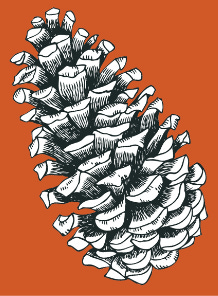🐿️ Stop Foincing Around and Avoid Falling Rocks
Originally published 10th February 2025
Asteroids have been in the news recently for two very different reasons, and both have something important to tell us about technological risk.
First, some entrepreneurs—mad or visionary or both—announced a multi-decade bet on space mining, sending up a probe on an untried rocket with only a good guess about how it will get to its destination, a planetoid called 2022 OB5. The company, AstroForge, know their target’s orbit takes it close to Earth, but theyve got precious little on its size or shape, and worse than that they don’t even know whether it has any minerals worth mining. That’s OK though, because nobody has the slightest clue how to tow it back to Earth if it does prove to be made of platinum. SpaceX may be blowing up spaceships every few months, but they look like buttoned-up bankers next to these guys.
And then NASA’s Department of The Sky Is Falling found another near-earth object that might possibly think about dropping in on our planet in 2032, if the weather’s nice and it doesn’t have anything else to do. This gave journalists the chance to feed the paranoiac in all of us with clickbait headlines like “Chance of Earth Being Hit By Asteroid Doubles”, conveniently leaving out the miniscule odds of the event and the relatively small size of the space rock compared to those involved in recent, relatively harmless impacts.
In fact, human beings are very poorly equipped to deal with these catastrophic but extremely unlikely events. Have a look at the many experiments that demonstrate just how badly we misinterpret such risks—or just consider how slow we’ve been to adopt self-driving cars, which crash less often than humans in most typical driving scenarios but can cause spectacular carnage in the very rare event that they do go wrong. The problem, as stalwart Squadron member Roland pointed out on the forum last week, is too much foinc (rhymes with “boink”): the Fear Of Imaginary Negative Consequences. Excessive foinc leads to caution and timidity in uncertain conditions, but that’s just when we need the ability to experiment with safe-to-fail probes to accelerate our learning.
Just last week I was advising an company suffering from over-foincing. An important new customer had set challenging expectations for delivery, and the tech team were so worried about missing the deadlines and losing the customer that they were considering cutting scope and taking dangerous shortcuts. To reduce their foinc, I asked them whether falling behind had gotten them fired before. Their unanimous “no” established that this fear was purely abstract—and it was easy to mitigate once they realised it wasn’t based on real experiences and that the “dead” in deadline was an exaggeration.
It’s not healthy to de-foinc yourself entirely; naturally, a little caution about the unknown is usually warranted. AstroForge, with their headlong, fearless rush into deep space, should hardly be the role model for most businesses with moderate IT risks on the books. But most of you have gone way too far the other direction, seeking certainty and safety from rigid methodologies and “best practices” that aren’t. Instead, just ask whether the risk you’re worried about has ever materialised, for you or others like you—in other words, has the asteroid ever actually hit anyone? If the answer is negative, the consequences are imaginary, and you’re probably getting foinced.
This first appeared in my weekly Insanely Profitable Tech Newsletter which is received as part of the Squirrel Squadron every Monday, and was originally posted on 10th February 2025. To get my provocative thoughts and tips direct to your inbox first, sign up here: https://squirrelsquadron.com/


